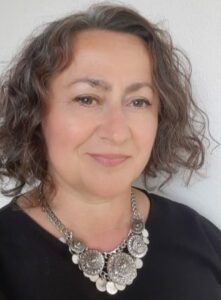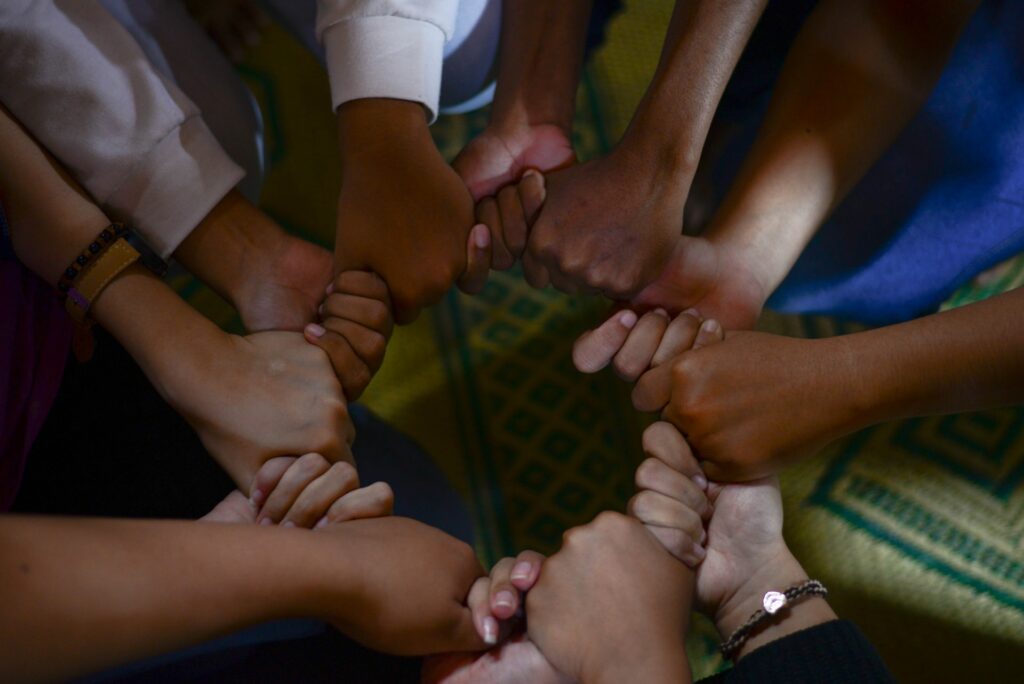
I chatted to Zekiye Kartal (she/her), an Intercultural Counsellor based in London, to learn more about her approach and her way of working.
Zekiye offers individual therapy and works with clients from diverse cultural and linguistic backgrounds. She works in three languages: English, German and Kurmanci (a Kurdish delict). Alongside her private practice, Zekiye works for Nafsiyat Intercultural Therapy Centre: a pioneering therapy approach offering counselling in over 25 languages.
Hi Zekiye, thanks for taking the time to chat with me. Would you mind introducing yourself and sharing a little bit about your work?
Thank you Will for the opportunity to talk about me and my counselling service. I have been qualified for three years as an Intercultural Counsellor.
Before the pandemic, I saw individual adults in central and north London in my therapy room. For over a year I have also offered online counselling, which I enjoy as much. I also offer therapeutic support groups through my work at Nafsiyat.
As an intercultural therapist, the client’s race, ethnicity, culture – and even mother tongue – are crucial factors in my work. It ensures I provide a therapeutic intervention that is focused entirely on the client’s needs.
What drew you to counselling?
I guess my love and belief in therapy began when I went to therapy myself for the first time and experienced what it was like to be listened to in a non-judgemental space.
The decision to become a qualified counsellor came later when I worked with vulnerable families and individuals from different communities. I started to see how important it was for them to be listened to with empathy, and just how important it was for them to be seen and understood for who they were.
What is intercultural counselling?
Intercultural therapy works with traditional therapeutic approaches such as psychoanalysis, person-centred, CBT (cognitive behavioural therapy) or relational therapies. It imbeds the external social and societal realities, such as racism, sexism, refugee status, physical health and abilities and poverty.
It also recognizes the differences and similarities of various aspects of culture between the client and therapist. Psychotherapist Jafar Kareem established intercultural therapy 30 years ago. Jafar saw that diverse religious, cultural, and ethnic communities in London were struggling to access talking therapy services.
Traditional psychotherapy was not inclusive for migrants. It tended to stigmatize and problematize, rather than truly put the client and their specific set of values and identities at the heart of the work. As an intercultural therapist, the client’s race, ethnicity, culture – and even mother tongue – are crucial factors in my work. It ensures I provide a therapeutic intervention that is focused entirely on the client’s needs.

What types of problems do you help clients work with?
I am trained to work with a wide range of problems, but much of my work focuses on aspects such as race and racism, displacement, cultural differences, domestic violence, trauma, abuse, identity, self-esteem, bereavement, relationships, work issues, depression, and anxiety.
How do you think the pandemic has affected people’s emotional wellbeing?
The pandemic has greatly impacted not only our physical freedom – but also our emotional freedom. Constant uncertainty about our own health, and the health of those around us (especially those most vulnerable), seems to have increased anxiety and feelings of low mood in all of us.
Loss and isolation have become part of our daily lives, which is painful and at times unbearable to cope with. I’ve seen how virtual socializing and online communication has become a tool for survival: online apps and networks have helped us stay in touch and show care and concern for others.
I guess my love and belief in therapy began when I went to therapy myself for the first time and experienced what it was like to be listened to in a non-judgemental space.
During the pandemic, you started to work online. How did you feel about that, and what differences, if any, did you notice?
Adapting to change can be incredibly difficult at the best of times, and for me, finding a user-friendly virtual platform was challenging. In our profession we need to keep our knowledge and skills updated regularly, and at the beginning of the pandemic I had to learn a lot about online counselling and how to provide a secure online therapeutic space.
My online counselling service has been running smoothly for over a year, and now I would say online therapy just as effective as face-to-face therapy.
An intercultural approach to therapy recognizes the importance of looking at society at large and not locating all the problems with the individual. It’s essential that therapists understand how emotional issues can be socially situated (due to race, sexuality, class, gender, and so on) but you and I both know that we are still some way from this being commonplace. How do you see attitudes towards this approach within the profession?
How can I do justice to such an important but complex question? I believe and hope we are moving away from such a narrow attitude – that all problems rest entirely with the client – in our profession.
In therapy, clients bring their entire individual and socioeconomic life. Therefore, they deserve a therapist who can truly relate to their rich intersectional existence.
Therapy must see that individuality is as important as belonging to a community – and neither can exist without the other.
As therapists, we can no longer say that we see our client without explicitly seeing – and understanding – their ethnicity and cultural identity. This is particularly important when the therapist and client may come from different cultures, it can be all too easy to make assumptions that are not in the client’s best interest.
Zekiye, thank you so much for taking the time to chat with me. Is there anything you would like to add?
Will, thank you very much for your insightful questions and for giving me the opportunity to talk on your website about my counselling service.
Zekiye Kartal is an intercultural counsellor and therapeutic group facilitator based in London. She works in private practice from her therapy room in North London and online. Her website is https://interculturaltherapy.co.uk/.


1 thought on “Intercultural counselling with Zekiye Kartal”